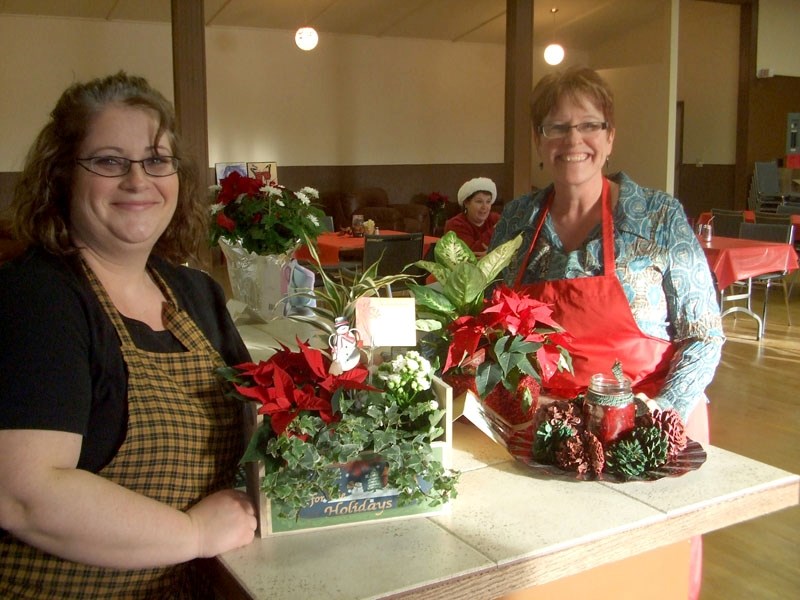For decades Sangudo was dying a slow death. As the hamlet prepares to celebrate its 100th homecoming anniversary we look at how the community turned its fortunes around.
It takes a crisis to make a community.
Northern Gateway Regional Division’s threat in 2005 to close Sangudo’s high school was potentially a killer blow to a hamlet whose lifeblood had been ebbing away for decades.
The signs of decay were everywhere: rundown buildings, closed businesses, disappearing grain elevators, and an exodus of young people to larger centres.
Now the youthful heart of the hamlet was about to be torn out. Instead of resignation and despair, however, Sangudo’s people rose up; they rallied around their school, attended meetings, and by creating a common vision discovered their own power, a power that had always been there, yet lay dormant.
Not only did they save the school, but they laid the foundation for a future of promise and hope. Emerging community leaders searched for grants, programs, awards, sponsorships and partnerships, and through the Alberta Recreation &Parks ACE (Active Creative Engaged) communities initiative, they found the expertise, advice and resources to begin sprucing up the area.
In 2009, more than 200 volunteers built a playground, skateboard park and beach volleyball court. They also put in new park benches, and planted flowers and trees.
The momentum for improvement was now unstoppable.
“This really was the spark that got things going for us,” said Dan Ohler, one of the community leaders. “We are so thankful and grateful for what we gained through the ACE communities initiative. It really helped us to create a vision for a vibrant and growing community. The ACE project is primarily about building leadership capacity in communities and it was so incredibly powerful for us. It was a project funded by Rural Alberta Development Fund.”
Other projects followed, including walking trails, a tree nursery, outdoor exercise equipment, arts festivals, singer/songwriter evenings and hobby workshops.
Attention then focused on business and economic resuscitation. The Alberta Community and Cooperative Association provided financial support for a feasibility study to start a Sangudo Co-op.
The Sangudo Opportunity Development Cooperative (SODC) was incorporated on May 7, 2010. It was the first co-op of its kind in Canada, with local money tied to local investments.
“The purpose is to support and facilitate the development of businesses and undertakings which enhance the social and economic wellbeing of our community,” said Ohler, chairman of the SODC’s five-member board. Ohler said return of investment was not the main focus; it was about people working together to recreate a community.
The SODC’s first major project was to help start Sangudo Custom Meat Packers, run by Jeff Senger and Kevin Meier.
SOCD bought the land and building and leased them to Senger and Meier, who bought the business and equipment.
It has been a success story, with the business flourishing and jobs created. A percentage of profits go to the SOCD, giving the community an incentive to patronize the business and help it succeed.
Ohler said a second project in October 2011, saw the launch of Connections Coffee House and restaurant off Main Street.
The SOCD bought the old Legion building and leased it to entrepreneurs. After a major renovation, Connections was opened in December, becoming a community meeting place.
Even more recently the SODC collected capital to help Custom Meat Packers carry out a huge expansion and rebuild. The project is also supported by funds from the Growing Forward program through Alberta Agriculture and Rural Development. Ohler said support and guidance from Richard Stringham (ACCA) and Paul Cabaj (SOCD consultant, who is now with ACCA) and the entire Alberta Community and Cooperative Association had been critical to Sangudo’s rejuvenation.
“The award we won that allowed us to hire Paul as our consultant for the feasibility study was also funded by Rural Alberta Development Fund,” he said.
Based on the success of its model, the SOCD is already investigating additional investments in Sangudo.
Ohler said grassroots leaders were key to any community following Sangudo’s example.
“These kinds of renewal projects are like barn-building in the 21st century,” he said. “They need to be driven by dynamic leaders that people know, like and trust. Trust is critical. Projects like this struggle when led by an employee of an organization or municipality.
“That’s not to say these people can’t be involved; only that they must be wearing their ‘community member’ hat when involved. And those community organizations can be incredible supports that are needed to provide meeting space, photocopying, coffee or whatever else they can do.”



